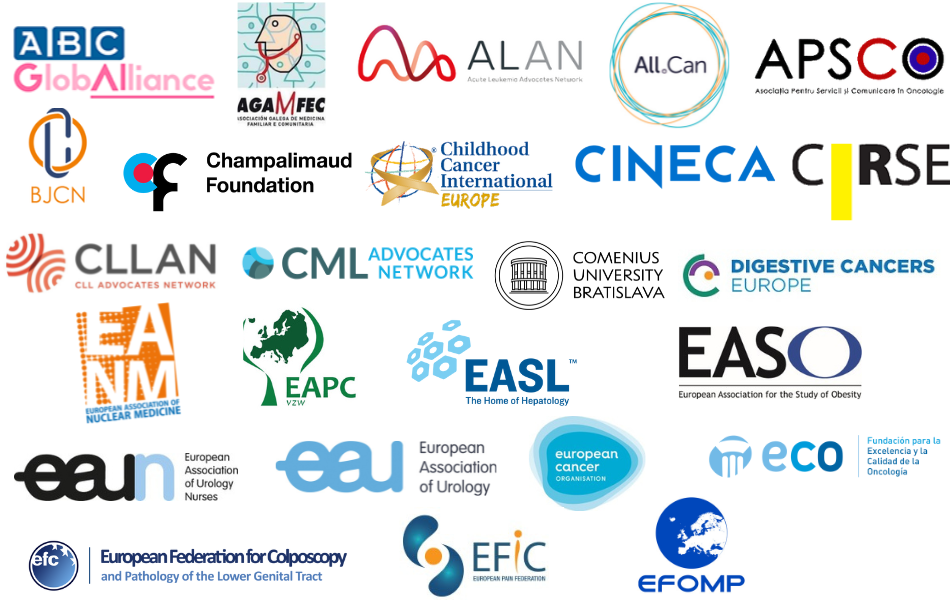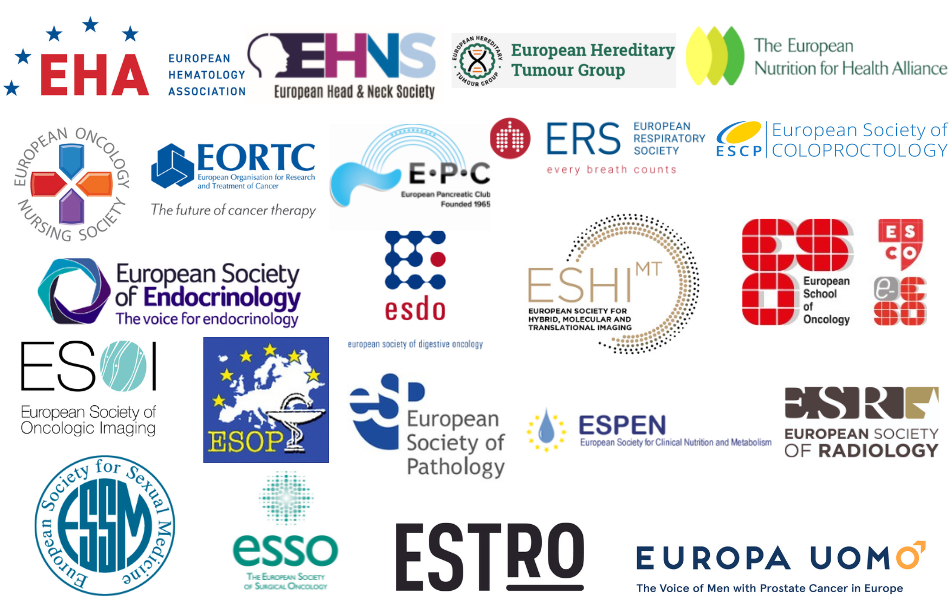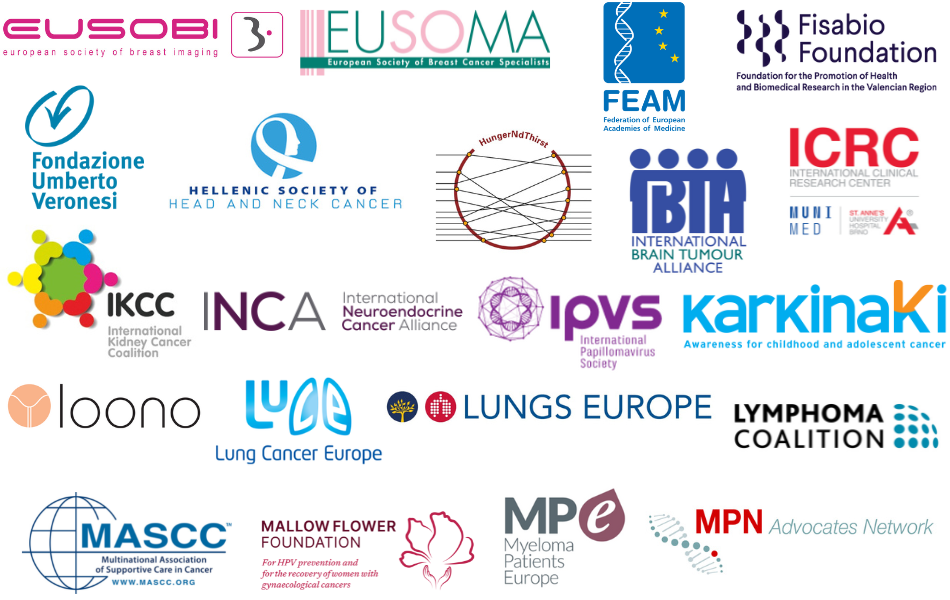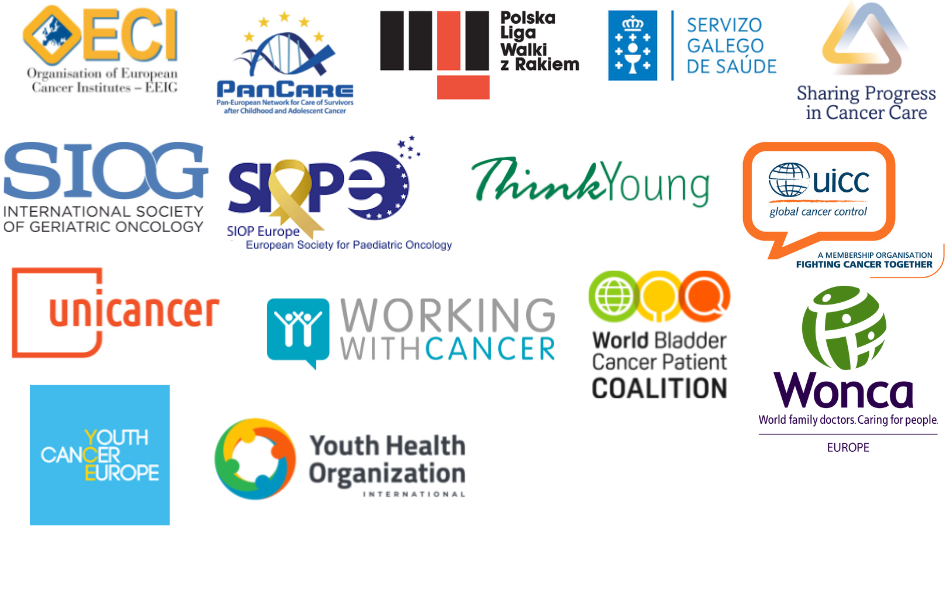Joint Expression of Concern About the Co-funding Model for Delivery of Europe’s Beating Cancer Plan
Whilst enthusiasm in the cancer community for Europe's Beating Cancer Plan remains high, concern has been growing about the viability of its main implementation funding stream, EU4Health. This programme typically requires organisations interested in leading or contributing to implementation actions to find 20%-40% of the costs incurred themselves.
The below letter, signed by a wide variety of impacted organisations, from across Europe, sets out these concerns in more detail, and refers to potential avenues for redress. It is submitted and published in constructive spirit and in anticipation that progress may be achieved on the matters raised without undue delay, not for the benefit of the signatory organisations but for the successful implementation of Europe's Beating Cancer Plan.
Dear Commissioner Kyriakides,
We, the undersigned organisations, write to both thank you for your ongoing energetic leadership of the EU’s ambitious cancer policy agenda, but also to raise with you a strongly felt level of concern at a weakness in its implementation strategy. That vulnerability to delivery is the co-funding model presently mandated via the EU4Health funding programme.
As you will be aware, EU4Health co-funding typically provides consortia and organisations successful in being awarded actions with 60% of eligible costs. The remaining 40% of costs is not provided. In exceptional circumstances 80% of funding can be provided if consortia are sufficiently geographically broad in their makeup.
We understand this is an historic requirement dating back to the very first inception of an EU health funding programme when its more modest remit included funding for the organisation of events or operational grants to Non Governmental Organisations acting in support of EU health goals.
However, we must express to the Commission the grave difficulties now coming to light associated to the use of this co-funding model when applied to the delivery of significant, large-scale and occasionally high-risk projects such as those that form the foundation of Europe’s Beating Cancer Plan. This is particularly becoming evident now that large numbers of such calls for proposals have been issued, and as the funding scale of these calls grows. The larger the call the greater the funding gap for prospective consortia to fill. We also understand that a level of capacity for principal pan-European actors, such as the organisations represented in the signature list below, is close to being reached. There are limits to how much financial liability for EU project delivery non governmental organisations can sensibly take on, especially in light of the uncertain funding scenarios many have faced as a result of the Covid pandemic.
Our communication is therefore sent in the most constructive of spirits. Each organisation represented in our signature list wishes most earnestly for the demonstrable success of Europe’s Beating Cancer Plan. However, this success cannot be achieved if the full funding for its ambition is not in existence and delivery partners are unable to come forward. The co-funding weakness of the EU4Health funding tool poses existential risk to the entire plan’s implementation achievement.
We therefore request resolution of the issue be prioritised accordingly. We suggest this matter be brought to the attention of member states for discussion. Long term resolution would be achieved by amendment to the EU4Health constituting legislation to permit 100% funding for high priority projects. Interim term solutions would appear likely to exist as well, including in how aspects of the legislation might be interpreted and understood, or creating facility for top-up funding for key projects to be attained from other sources.
We would like to have rapid further dialogue with you and your officials on these points. We consider this especially urgent in the context of a forthcoming wave of new funding calls to be issued as part of the EU4Health 2023 Work Programme.
We look forward to constructive engagement on the matters described above and to prompt finding of solutions. The inducement for solution is clear. We cannot let the success of Europe’s Beating Cancer Plan be compromised by out-of-date requirements from historic legislation. Pragmatism combined with urgency can resolve these issues if we act promptly.
Thank you in advance for your engagement on these matters.
Please view all endorsements and signatories below and contact us here if you wish to be part of this effort.




Signatories:
- Fatima Cardoso, President, ABC Global Alliance
- Maria Jose Fernandez Dominguez, President, Galician Family and Community Medicine Society (AGAMFEC)
- Zack Pemberton-Whiteley, Chair, Acute Leukemia Advocates Network (ALAN)
- Eduardo Pisani, Chief Executive, All.Can
- Csaba Dégi, President, Assessment of Psycho-Social and Communication Needs In Oncology Patients (APSCO)
- Dimitar Kalev, President, Bulgarian Joint Cancer Network (BJCN)
- Maria Leonor Beleza, President, Champalimaud Foundation
- Anita Kienesberger, Chair of CCI Europe Committee, Childhood Cancer International - Europe (CCI Europe)
- David Vannozzi, CEO, Cineca
- Nick York, Chair, CLL Advocates Network (CLLAN)
- Roderick Padua, Chair, CML Advocates Network (CMLAN)
- Marek Števček, Rector, Comenius University Bratislava
- Zorona Maravic, Chief Executive, Digestive Cancers Europe (DiCE)
- Jolanta Kunikowska, President, European Association of Nuclear Medicine (EANM)
- Chris Chapple, Secretary General, European Association of Urology (EAU)
- Paula Allchorne, Chair, European Association of Urology Nurses (EAUN)
- Matti Aapro, Past-President, European Cancer Organisation (ECO) and President, Sharing Progress in Cancer Care (SPCC)
- Maggie Cruickshank, President, European Federation for Colposcopy (EFC)
- Brona Fullen, President, European Pain Federation (EFIC)
- Paddy Gilligan, President, European Federation of Organisations for Medical Physics (EFOMP)
- Frank Schulz, Managing Director, European Hematology Association (EHA)
- Wojciech Golusinski, President, European Head & Neck Society (EHNS)
- Joost Wesseling, Executive Director, European Nutrition for Health Alliance (ENHA)
- Johan De Munter, President, European Oncology Nursing Society (EONS)
- Winette van der Graaf, President, European Organisation for Research and Treatment of Cancer (EORTC)
- Gabriele Capurso, General Secretary, European Pancreatic Club (EPC)
- Antonino Spinelli, General Secretary, European Society of Coloproctology (ESCP)
- Eric Van Cutsem, President, European Society of Digestive Oncology (ESDO)
- Martin Reincke, President, European Society of Endocrinology (ESE)
- Clemens Cyran, President, European Society for Hybrid, Molecular and Translational Imaging (ESHI)
- Fedro Peccatori, Scientific Director, and Alexandru Eniu, Scientific Deputy Director, European School of Oncology (ESO)
- Mirjam Crul, Vice-President, European Society of Oncology Pharmacy (ESOP)
- Raed Al Dieri, Director General, European Society of Pathology (ESP)
- Rocco Barazzoni, Chairman, European Society for Clinical Nutrition and Metabolism (ESPEN)
- Regina Beets-Tan, Chair, European Society of Radiology (ESR) Board of Directors
- Cobi Reisman, Former President, European Society for Sexual Medicine (ESSM)
- Isabel Rubio, President, European Society of Surgical Oncology (ESSO), and President, European Society of Breast Cancer Specialists (EUSOMA)
- Anna Kirby, President, European Society for Radiotherapy and Oncology (ESTRO)
- Ruud Pijnappel, President, European Society of Breast Imaging (EUSOBI)
- Günther Carl, Chairman, Europa Uomo
- Stefan Constantinescu, President, Federation of European Academies of Medicine (FEAM)
- Mónica Pont-Pérez, Managing Director, Fisabio foundation
- Paolo Veronesi, President, Fondazione Umberto Veronesi
- Álvaro Rogado, Executive Director, Fundación ECO
-
Ana Clavería, Primary Care Research Unit, Galician Health Service
- Pavlos Maragkoudakis, President, Hellenic Society of Head and Neck Cancer (HeSHNCA)
- Robert S. Greene, President, HungerNdThirst Foundation
- Kathy Oliver, Chair & founding Co-Director of the International Brain Tumour Alliance (IBTA) and Co-Chair, Patient Advisory Committee, European Cancer Organisation
- Rachel Giles, Chair, International Kidney Cancer Coalition (IKCC)
- Teodora Kolarova, Executive Director, International Neuroendocrine Cancer Alliance (INCA)
- Niall O'Higgins, Co-Chair, INTERACT-EUROPE project
- Margaret Stanley, Immediate Past-President, International Papillomavirus Society (IPVS)
- Irena Rektorová, Head, International Clinical Research Center
- Renato Botti, General Director, IRCCS Istituto Giannina Gaslini
- Asimo Koukougianni, Chief Executive, Karkinaki - Awareness for Childhood and Adolescent Cancer
- Karin Sundström, Principal Investigator, Karolinska Institute
- Katerina Sedova, Founder & CEO, Loono
- Anne-Marie Baird, President, Lung Cancer Europe (LuCE)
- Kjeld Hansen, Director, Lungs Europe
- Natacha Bolaños, Head, Membership & Alliances, Lymphoma Coalition
- Ildikó Nagy-Tóth, President, Mallow Flower Foundation
- Maryam Lustberg, President, Multinational Association of Supportive Care in Cancer (MASCC)
- Lise-lott Eriksson, President, Myeloma Patients Europe (MPE)
- Werner Zinkand, Chair, MPN Advocates Network
- Thierry Philip, President, Organisation of European Cancer Institutes (OECI)
- Katrin Scheinemann, Chair, Pan-European Network for Care of Survivors after Childhood and Adolescent Cancer (PanCare)
- Nicolò Matteo Luca Battisti, President, International Society of Geriatric Oncology (SIOG)
- Samira Essiaf, Chief Executive, SIOP Europe
- Andrea Gerosa, Founder, ThinkYoung
- Michael Keane, Dean of Medicine, Head of School, UCD School of Medicine
- Cary Adams, Chief Executive, Union for International Cancer Control (UICC)
- Jean-Yves Blay, President, Unicancer
- Lydia Makaroff, President, World Bladder Cancer Patient Coalition (WBCPC)
- Shlomo Vinker, President, World Organization of Family Doctors - Europe (Wonca Europe)
- Barbara Wilson, Founder & Director, Working with Cancer
- Katie Rizvi, Co-founder and Executive Director, Youth Cancer Europe (YCE)
- Jan Peloza, Secretary General, Youth Health Organization (YHO)

